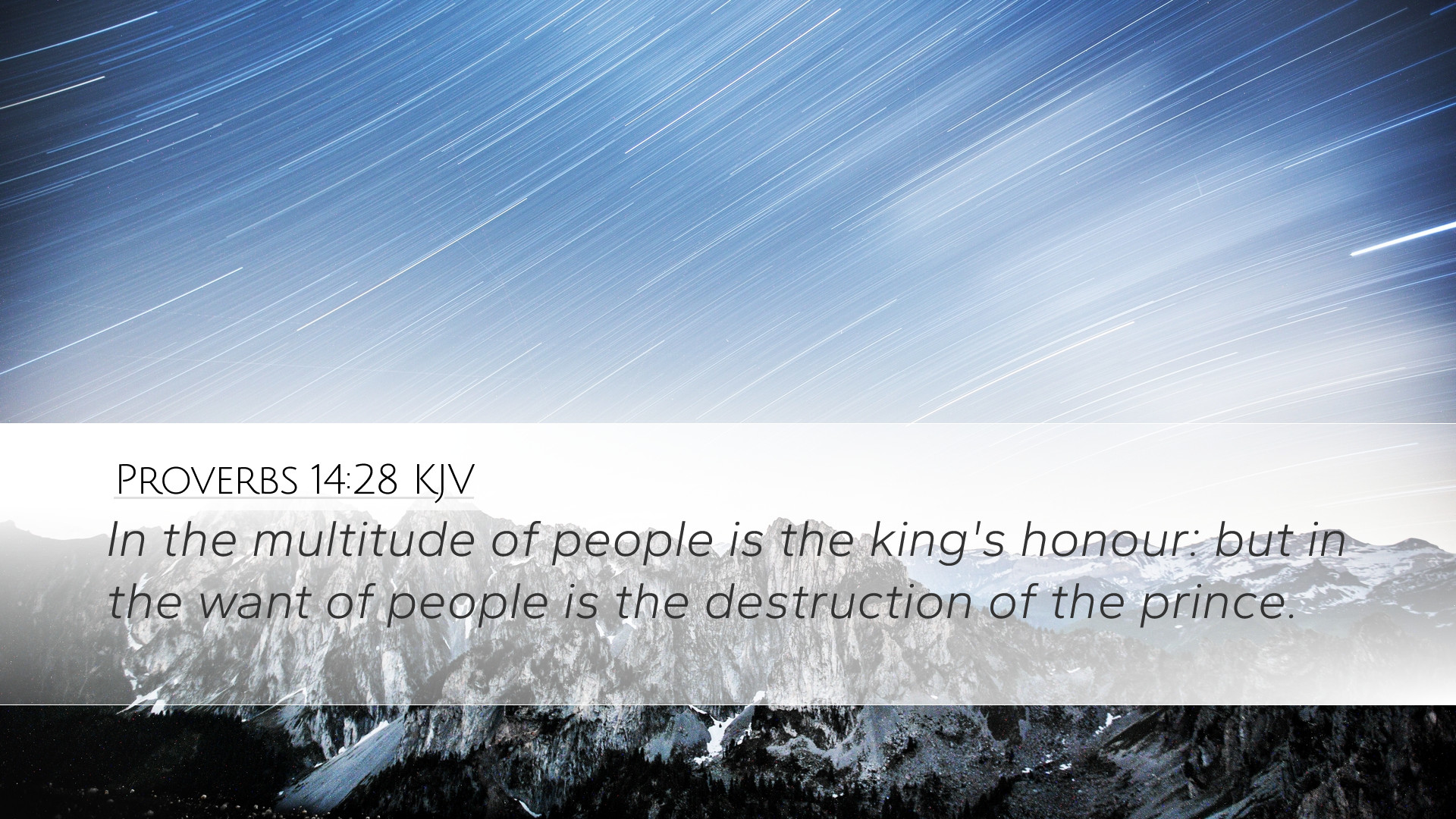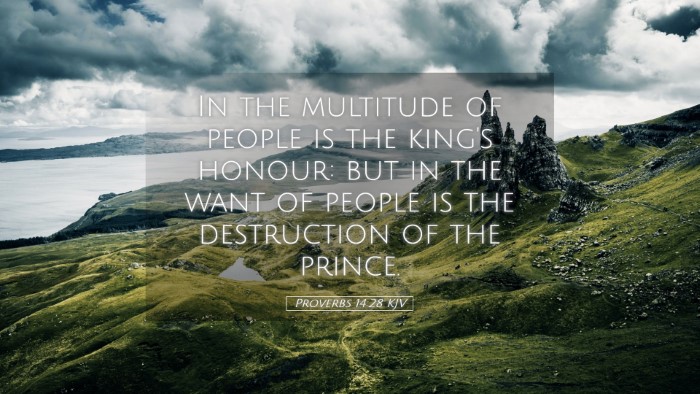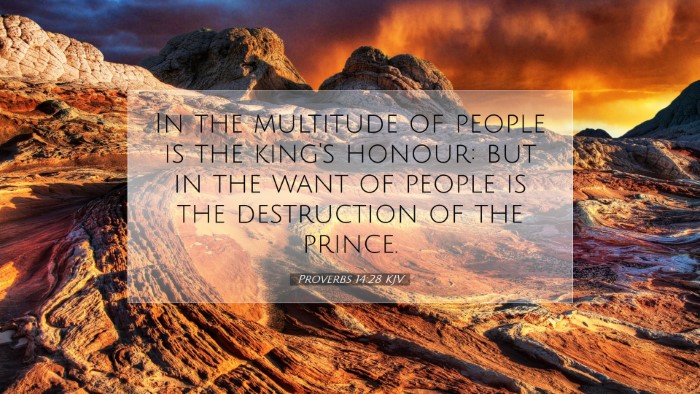Commentary on Proverbs 14:28
Verse: "In the multitude of people is the king's honor: but in the want of people is the destruction of the prince."
Introduction
This verse from Proverbs serves as a poignant reminder of the value that community and population hold for leadership and governance. It reflects a deep understanding of societal dynamics, particularly how the presence and engagement of people can either elevate a leader's status or lead to their downfall. The commentaries from Matthew Henry, Albert Barnes, and Adam Clarke provide profound insights into this verse.
Insight from Matthew Henry
Matthew Henry emphasizes that a king’s honor is tied closely to his subjects. The multitude of people implies audience, influence, and support:
- Honor of Leadership: A leader’s reputation is enhanced when they govern a populous kingdom. This multitude allows for greater authority and recognition.
- Public Support: Henry notes that the underlying principle is that public support fortifies a leader’s reign. The stability and strength of a kingdom are reliant on a committed populace.
- Contrast with Isolation: The latter part of the verse illustrates the stark contrast — ‘in the want of people’ symbolizes not only physical absence but also a lack of discourse and fortitude, leading to potential downfall.
Insights from Albert Barnes
Albert Barnes approaches this verse by contextualizing it within the social order and political hierarchy:
- Social Relations: Barnes highlights that the prosperity of a ruler is intricately linked to the loyalty and numbers of their subjects. A ruler without people cannot maintain authority nor execute orders adequately.
- Implications for Leadership: He expands on the conceptual understanding that successful leadership involves cultivating relationships with people, garnering their trust and respect.
- Consequences of Neglect: Barnes poignantly notes the consequences of failing to engage with the populace, leading to neglect and ultimately, chaos in governance.
Reflections from Adam Clarke
Adam Clarke provides a broader theological perspective on the interplay of authority and community:
- Divine Order: Clarke asserts that God’s design for societies involves strong relationships and communal support. In this sense, a king’s honor reflects God’s plan for mankind to thrive together.
- Spiritual Leadership: He addresses spiritual leadership, drawing parallels between earthly governance and divine authority, suggesting that spiritual leaders also thrive in community.
- Sustainable Governance: Clarke concludes that sustainable governance emerges from a participatory model where leaders are engaged and accountable to their people. This solid foundation mitigates against the destruction that arises from absence or neglect of societal engagement.
Theological and Practical Applications
From these insights, several key theological and practical applications emerge for pastors, students, theologians, and Bible scholars:
- Leadership and Community: It is crucial for church leaders to embrace the community aspect of their roles. The essence of effective ministry lies in the multitude of believers who support and uphold the church.
- Engagement Strategies: Emphasizing engagement strategies that invite congregational participation can enhance the health and growth of any ministry.
- Holistic Governance: As seen in civil and ecclesiastical realms, leaders must foster relationships built on trust, making the metrics of success not solely numbers but the quality of interaction and unity.
- Reflection on Leadership Character: This verse invites a reflection on the moral character of leaders, reinforcing the idea that their honor is derived not merely from position but from the people they serve.
Conclusion
Proverbs 14:28 serves as a timeless reminder of the intricate relationship between leaders and their communities. As seen through the insights from Henry, Barnes, and Clarke, the vitality of a kingdom—be it secular or sacred—lies inherently in the people whom it serves. For modern congregations and societies alike, this proverb underscores the essence of leadership: fostering a vibrant community can greatly honor a leader and avert potential downfalls, a lesson worth contemplating deeply in all realms of influence.


